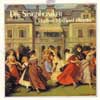Michael Haydn Part Songs
View record and artist detailsRecord and Artist Details
Composer or Director: (Johann) Michael Haydn
Label: CPO
Magazine Review Date: 2/1997
Media Format: CD or Download
Media Runtime: 61
Mastering:
DDD
Catalogue Number: CPO999 333-2

Tracks:
| Composition | Artist Credit |
|---|---|
| Hymne an Gott |
(Johann) Michael Haydn, Composer
(Johann) Michael Haydn, Composer Singphoniker |
| (Die) Verwandlungen |
(Johann) Michael Haydn, Composer
(Johann) Michael Haydn, Composer Singphoniker |
| Ständchen |
(Johann) Michael Haydn, Composer
(Johann) Michael Haydn, Composer Singphoniker |
| Lied der Freiheit |
(Johann) Michael Haydn, Composer
(Johann) Michael Haydn, Composer Singphoniker |
| (Das) Gebet |
(Johann) Michael Haydn, Composer
(Johann) Michael Haydn, Composer Singphoniker |
| Monsieur Hans |
(Johann) Michael Haydn, Composer
(Johann) Michael Haydn, Composer Singphoniker |
| (Der) Morgen im Lenz |
(Johann) Michael Haydn, Composer
(Johann) Michael Haydn, Composer Singphoniker |
| (Die) Elfen |
(Johann) Michael Haydn, Composer
(Johann) Michael Haydn, Composer Singphoniker |
| Coppia si tenera |
(Johann) Michael Haydn, Composer
(Johann) Michael Haydn, Composer Singphoniker |
| Silenzio facciani |
(Johann) Michael Haydn, Composer
(Johann) Michael Haydn, Composer Singphoniker |
| (Der) Obersulzer Wein |
(Johann) Michael Haydn, Composer
(Johann) Michael Haydn, Composer Singphoniker |
| (Die) Wiedergenesung |
(Johann) Michael Haydn, Composer
(Johann) Michael Haydn, Composer Singphoniker |
| Zu ihr! zu ihr! |
(Johann) Michael Haydn, Composer
(Johann) Michael Haydn, Composer Singphoniker |
| Abendlied |
(Johann) Michael Haydn, Composer
(Johann) Michael Haydn, Composer Singphoniker |
| Rundgesang beim Abschied eines Biedermannes |
(Johann) Michael Haydn, Composer
(Johann) Michael Haydn, Composer Singphoniker |
| Trinklied im Freien |
(Johann) Michael Haydn, Composer
(Johann) Michael Haydn, Composer Singphoniker |
| Tischgebet aus 'der Schöpfung' |
(Johann) Michael Haydn, Composer
(Johann) Michael Haydn, Composer Singphoniker |
| Abschiedslied |
(Johann) Michael Haydn, Composer
(Johann) Michael Haydn, Composer Singphoniker |
| An den Hain zu Aigen |
(Johann) Michael Haydn, Composer
(Johann) Michael Haydn, Composer Singphoniker |
Author: Lionel Salter
This vocal group with the terrible word-play for a name consists of former Munich music students who started out with imitations of the great Comedian Harmonists but have since branched out into a repertoire which ranges from Gregorian chant via Mendelssohn partsongs and Rossini arrangements to Kodaly, Villa-Lobos and beyond. Hailed as Germany’s answer to the King’s Singers, they are indeed highly accomplished, with a unanimity and blend that make for enjoyable listening.
These male-voice quartets by Michael Haydn, written for convivial gatherings for the most part, are very skilfully written, with an easy melodiousness, and are sufficiently varied to retain our interest, their subjects being love (from serenades to ironic or comic treatments), drinking, nostalgia for youth, and awe before Nature or in praise of God. The repeated strophes of the majority of them make variety of dynamics and colour imperative, and at this, together with nuances of pace and extremely intelligent verbal phrasing, the Singphonikers excel. An exception to the generally homophonic texture and strophic structure is the through-composed Das Gebet (a wry commentary on overt piety), where Haydn changes the mood in accordance with the words; and Rundgesang is a rondo. One of the two Standchen here has more ornate lines, but for developed lyricism Wiedergenesung (“Convalescence”) and Abendlied are outstanding. Two songs in Italian are in fact arrangements of arias from Salieri’s opera Palmira (one is Silenzio facciani, considered one of the first unaccompanied ensembles in opera); and still more surprising is Tischgebet (“Grace at table”), which is a version of the trio in brother Joseph’s Creation. An agreeable disc.'
These male-voice quartets by Michael Haydn, written for convivial gatherings for the most part, are very skilfully written, with an easy melodiousness, and are sufficiently varied to retain our interest, their subjects being love (from serenades to ironic or comic treatments), drinking, nostalgia for youth, and awe before Nature or in praise of God. The repeated strophes of the majority of them make variety of dynamics and colour imperative, and at this, together with nuances of pace and extremely intelligent verbal phrasing, the Singphonikers excel. An exception to the generally homophonic texture and strophic structure is the through-composed Das Gebet (a wry commentary on overt piety), where Haydn changes the mood in accordance with the words; and Rundgesang is a rondo. One of the two Standchen here has more ornate lines, but for developed lyricism Wiedergenesung (“Convalescence”) and Abendlied are outstanding. Two songs in Italian are in fact arrangements of arias from Salieri’s opera Palmira (one is Silenzio facciani, considered one of the first unaccompanied ensembles in opera); and still more surprising is Tischgebet (“Grace at table”), which is a version of the trio in brother Joseph’s Creation. An agreeable disc.'
Discover the world's largest classical music catalogue with Presto Music.

Gramophone Digital Club
- Digital Edition
- Digital Archive
- Reviews Database
- Full website access
From £8.75 / month
Subscribe
Gramophone Full Club
- Print Edition
- Digital Edition
- Digital Archive
- Reviews Database
- Full website access
From £11.00 / month
Subscribe
If you are a library, university or other organisation that would be interested in an institutional subscription to Gramophone please click here for further information.




